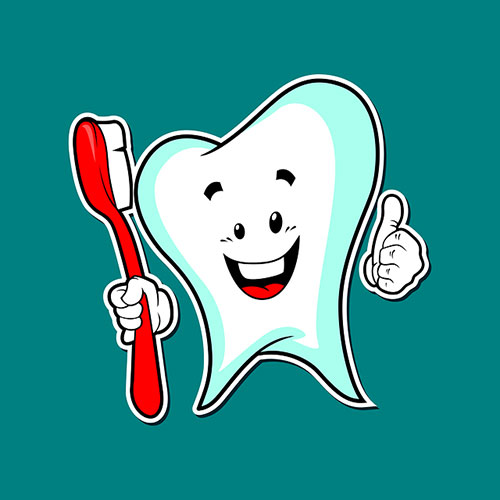TOOTHY TALES
TO BE OR NOT TO BE- Wisdom behind the wisdom tooth
In common parlance, a third molar is called the wisdom tooth. This is the last tooth to emerge in the mouth and is also located at the very end of the dental arch. It is so called as it shows up in the mouth by 17-21 years of age, the age by which we are presumably wiser or are considered to have attained wisdom!

We have 1wisdom tooth on each side of the upper and lower tooth arches, making up four in total. Many individuals may not have one or more wisdom teeth in their mouth. This usually happens when there is inadequate space to accommodate these teeth. The tooth, however, may be embedded in the bone and may show up on a dental X-ray.
In some, the entire tooth bud or the origin of the tooth by itself maybe missing. On other occasions, the wisdom tooth may have been partially exposed in the mouth. This tooth is covered by a soft tissue, which commonly is inflamed, red, and swollen. The opposite arch molar teeth may impinge on this while opening and closing the mouth, leading to local ulceration, pain, and discomfort.This is called PERICORONITIS.
This soft tissue can also get readily infected as it harbors a small gap, resulting in food accumulation and consequent bacterial proliferation.In severe cases, it can result in a pus-filled infection called a PERICORONAL ABSCESS.
Many a time, the wisdom tooth may erupt completely but is improperly placed in the arch. The tooth may be inclined towards the cheek and can result in painful sores or ulcers due to repeated cheek biting. Their placement on occasion may be below the level of the preceding second molar, creating an area where the food accumulates. This may cause tooth decay not only in the wisdom tooth but also on the back side of the adjacentsecond molar requiring an immediate treatment.
FAQs regarding wisdom teeth
- What are impacted wisdom teeth?
Wisdom teeth that have not fully emerged in the mouth due to lack of space are referred to as impacted. - Are all wisdom teeth indicated for removal?
Wisdom teeth removal are decided on a case-by-case basis. In some cases, if wisdom teeth are healthy and aligned properly, they can be used to support a bridge. - Is wisdom teeth removal a complicated procedure?
The level of difficulty is determined primarily by its location with respect to the preceding second molar and its proximity to adjoining nerves and blood vessels.This can be predicted to a great extend by assessing a dental X-Ray. - Is removal of a wisdom tooth painful?
The removal, in most cases, is done under local anesthesia. General anesthesia may be an option when multiple third molars are removed in a single sitting.Pain killers and anti-inflammatory medications are prescribed to keep the patient comfortable. Some swelling may be anticipated depending on the level of difficulty encountered during the procedure. - Do I need to get my wisdom tooth removed if it is not giving me any trouble?
On some occasions, impacted wisdom teeth may be associated with cysts or tumors. These may not give rise to any symptoms.It is always prudent to have the wisdom teeth evaluated by a full mouth X-Ray or OPG to see if there is any pathology associated with it. - What are after-care points to remember after wisdom tooth removal?
The precautions to be taken after removal are similar to those after regular tooth extraction.- Avoid hard, spicy foods for the next few days
- Don’t spit, rinse, or gargle for the next 24 hours
- Don’t smoke
- Don’t consume any hot foodstuffs for the next 24 hours
- Don’t use a straw to suck juices.
- Take all medicines prescribed in a timely manner.

- Are stitches placed after wisdom tooth removal?
Yes, stitches are requiredafter removal. If the stitches are non-resorbable variety, they need to be removed by the dentist in about 7 days. Resorbable stitches get dissolved on their own. - Do you need to replace a wisdom tooth that has been extracted?
No, extracted wisdom teeth need not be replaced.
Did you know?
Wisdom teeth in early humans were important because of coarse and uncooked foods consumed by them. In due course of evolution, dietary changes and changes in jaws are likely to render wisdom teeth in humans extinct.

Dr. Preethi L. Anand
Senior Dental Surgeon & Implantologist
Kauvery Hospital, Chennai


